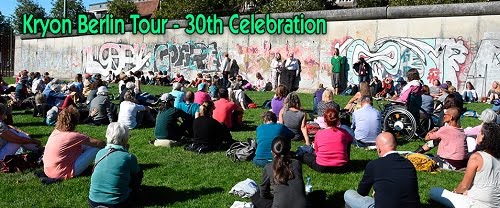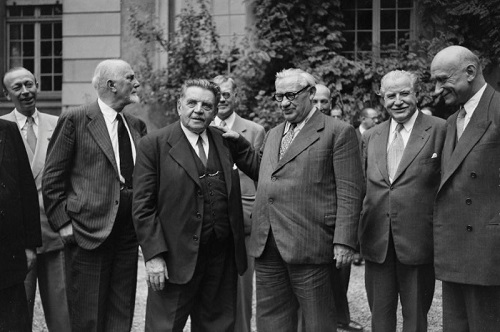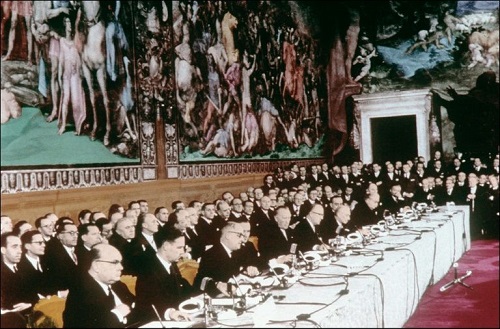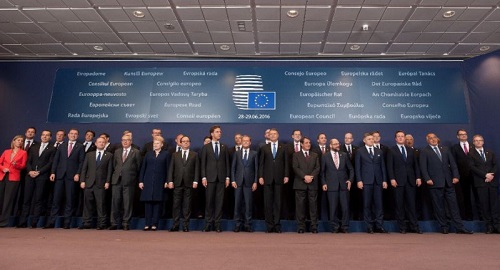Google – AFP, Claire Rosemberg (AFP), 20 March 2014
 |
US
President Barack Obama speaks on the situation in Ukraine on the
South Lawn of
the White House on March 20, 2014 (AFP, Mandel Ngan)
|
BRUSSELS —
US President Barack Obama announced a new round of punitive measures for
Moscow's annexation of Crimea on Thursday as Europe's leaders also readied to
hit back at Russia with fresh sanctions.
But in
Moscow, where the lower house of parliament rubber-stamped the absorption of
the rebel peninsula, Russia issued its own list of sanctions against nine US
officials, including senior political figures and presidential aides.
Obama, who
threatened to target the broader Russian economy if Moscow does not reverse
course, said: "Russia must know that further escalation will only isolate
it further from the international community."
 |
Russia's
President Vladimir Putin looks on
during his meeting with Defence Minister
Sergei Shoigu in the Kremlin in Moscow
on March 20, 2014 (RIA-NOVOSTI/AFP,
Alexey Druzhinin)
|
The latest
US measures in the worst East-West crisis since the Cold War target a new list
of 20 lawmakers and senior government officials in addition to 11 people
already sanctioned by Washington.
Among those
named are top businessmen close to President Vladimir Putin such as
billionaires Gennady Timchenko, Arkady Rotenberg and Boris Rotenberg plus a
bank used by close associates.
In turn,
Moscow listed Obama aides Caroline Atkinson, Daniel Pfeiffer and Benjamin
Rhodes and senators Mary Landrieu, John McCain and Daniel Coats.
"There
should be no doubt: each hostile attack will be met in an adequate
manner," the Russian foreign ministry said, while Putin's spokesman
slammed Obama's move as "unacceptable."
In
Brussels, where the 28-nation European Union was gathering for its second
summit on Ukraine in less than two weeks, French President Francois Hollande
said: "Borders cannot be redrawn and a region allowed to pass from one
nation to another without a response."
Hollande
said the bloc's leaders would announce fresh sanctions at the two-day meeting
"against a certain number of figures" and would cancel an EU-Russia
summit planned for June.
But EU
nations, heavily dependent on Russian oil and gas, are divided on how far they
should go, with many reluctant to take the next step up with tough economic
sanctions.
"We
will make clear that we are ready in case of further escalation to introduce
economic sanctions," said German Chancellor Angela Merkel, whose country
is Russia's leading EU trading partner.
 |
United
Nations Secretary General Ban
Ki-moon (L) speaks with Russia's President
Vladimir Putin (R) during their meeting in
the Kremlin in Moscow on March 20,
2014
(Pool/AFP, Sergei Ilnitsky)
|
Urging the
bloc "to speak with a clear and united voice", Britain's Prime
Minister David Cameron said all were agreed on helping build a strong and
democratic Ukraine.
Kiev
interim premier Arseniy Yatsenyuk will be in Brussels to sign the political
parts Friday of a broad EU Association Agreement whose rejection in November by
Ukraine's pro-Kremlin president Viktor Yanukovych sparked the protests that led
to his fall.
Putin
meanwhile found himself on the defensive in Moscow when United Nations
Secretary-General Ban Ki-moon told him: "I cannot but to tell you that I
am deeply concerned."
Ban called
for the deployment to Ukraine of rights monitors from the UN and the
Organisation for Security and Co-operation in Europe (OSCE) and for an
"honest and constructive dialogue" between Moscow and Kiev.
Sanctions
and calls for talks have so far done nothing to halt Russian military advances,
with Kiev's new Western-backed government preparing a Crimean evacuation plan
for thousands of Ukrainian soldiers and their families.
Tensions
eased somewhat in the region when acting president Oleksandr Turchynov
announced the release Thursday by Crimean militias of Ukranian navy chief
Sergiy Gayduk.
Turchynov
had threatened the Crimean authorities with "an adequate response ... of a
technical and technological nature" unless they freed Gayduk and several
others who were captured during the storming of Ukraine's naval headquarters in
the port of Sevastopol on Wednesday.
Fears of
wider Moscow intervention
 |
Russian
soldiers patrol the area surrounding
the Ukrainian military unit in
Perevalnoye,
outside Simferopol, on March 20, 2014
(AFP, Filippo Monteforte)
|
The march
by Moscow's troops and pro-Kremlin militias across the mostly Russian-speaking
region roughly the size of Belgium has been unhalting since the day Putin won
parliamentary approval to use force against his ex-Soviet neighbour following
the February 22 fall of Yanukovych.
Kiev's
untested leaders now fear that Putin has set his sights on Russified
southeastern swathes of Ukraine as part of his self-declared campaign to
"protect" compatriots.
"There
are indications that Russia is braced to unleash a full-blown intervention on
Ukraine's east and south," Ukraine UN ambassador Yurii Klymenko told
reporters in Geneva.
Russia's
Federal Customs Service stepped up the pressure on Thursday by announcing
tougher and more time-consuming inspections of goods entering the country from
Ukraine that it said were aimed at intercepting possible illicit shipments of
arms.
Ukraine has
announced plans to withdraw from the Moscow-led Commonwealth of Independent
States (CIS) alliance that replaced the Soviet Union and to slap visas on
Russians who want to enter the country.
France
delays warship decision
EU leaders
have already suspended talks on easing visa requirement for Russian travellers
into Europe -- an issue that Moscow has lobbied for for years -- and slapped
travel bans and asset freezes on 21 Russians and Ukrainians considered culpable
for the Crimean swoop.
But the
measures covered a much lower rank of officials than the initial US list of 11
Russians and Ukrainians and some were pushing for more, including possible
economic sanctions which would cause real pain for Russia and quite likely
Europe too.
A key area
of concern is energy, with Russia supplying more than a quarter of the EU's
gas. Some member states, especially former Cold War Moscow satellites such as
Bulgaria, rely almost totally on Russia for energy and they have warned against
measures which could effectively halt their economies.
EU efforts
to diversify energy supplies after Russia cut deliveries to Ukraine in 2006 and
2009 have so far failed to make much headway and the EU leaders are due to
discuss the issue again.
Germany
appeared set to pursue a more forceful push against Russia by on Wednesday
announcing the suspension of a major arms deal with Moscow.
But France
resisted pressure to make a similar gesture, saying on Thursday that it was
putting off a decision on whether to shelve its disputed sale of a second
state-of-the-art Mistral warship to Russia until October -- the expected
delivery date of the first vessel.
Putin, Merkel back Ukraine OSCE mission in phone call: Kremlin
Russia promises not to attack east Ukraine: US
Related Articles:
Putin, Merkel back Ukraine OSCE mission in phone call: Kremlin
Russia promises not to attack east Ukraine: US
 |
Russia's
President Vladimir Putin (L) speaks with Defence Minister
Sergei Shoigu during
their meeting in the Kremlin in Moscow on
March 20, 2014 (Ria-Novosti/AFP,
Alexey Druzhinin)
|












No comments:
Post a Comment
Note: Only a member of this blog may post a comment.